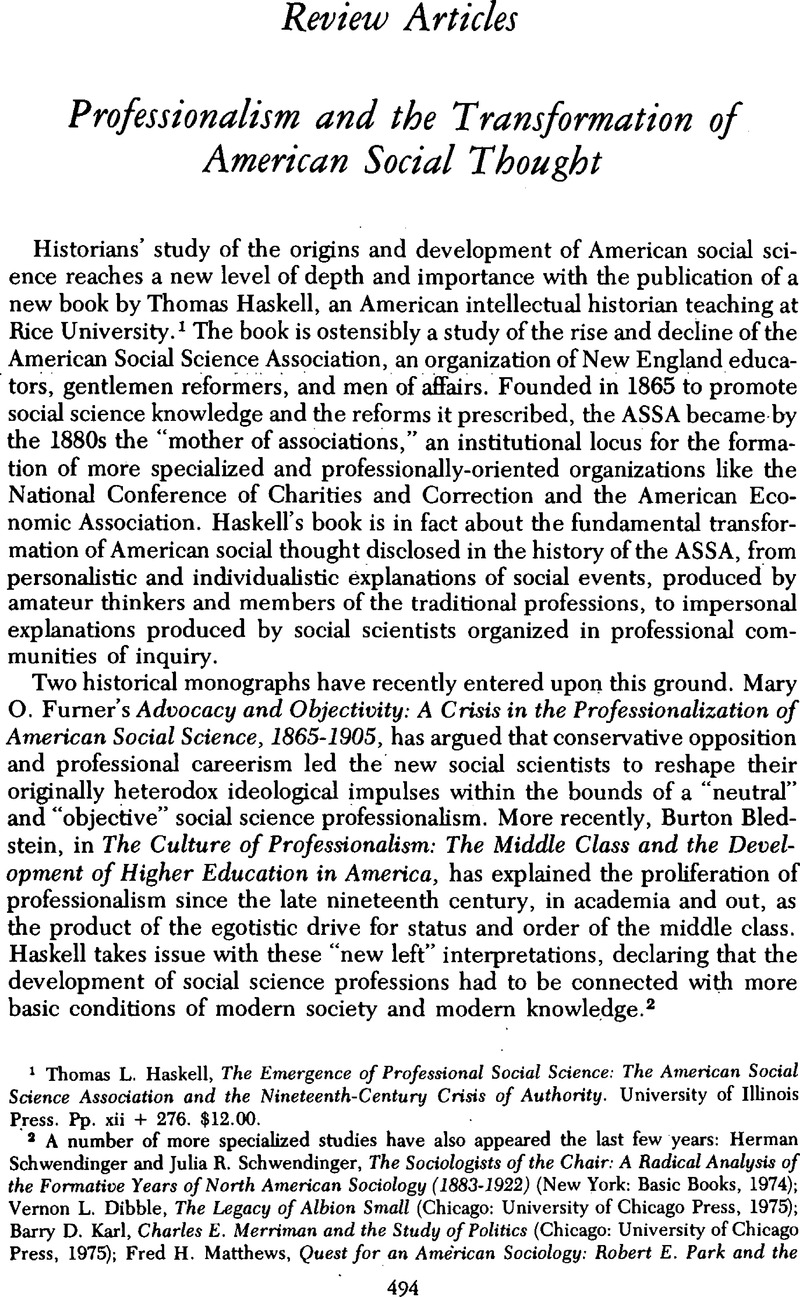Published online by Cambridge University Press: 11 May 2010

1 Thomas L. Haskell, The Emergence of Professional Social Science: The American Social Science Association and the Nineteenth-Century Crisis of Authority. University of Illinois Press. Pp. xii + 276. $12.00.
2 A number of more specialized studies have also appeared the last few years: Schwendinger, Herman and Schwendinger, Julia R., The Sociologists of the Chair: A Radical Analysis of the Formative Years of North American Sociology (1883–1922) (New York: Basic Books, 1974)Google Scholar; Dibble, Vernon L., The Legacy of Albion Small (Chicago: University of Chicago Press, 1975)Google Scholar; Karl, Barry D., Charles E. Merriman and the Study of Politics (Chicago: University of Chicago Press, 1975)Google Scholar; Matthews, Fred H., Quest for an American Sociology: Robert E. Park and the Chicago School (Montreal: McCill-Queen's University Press, 1977)CrossRefGoogle Scholar. For a review of some of this literature which assesses Whiggish bias differently, see Kuklick, Henrika, “The Organization of Social Science in the United States,” American Quarterly, 28 (Spring, 1976), pp. 124–41CrossRefGoogle Scholar. See also Haskell's review of Bledstein, “Power to the Experts,” The New York Review of Books, 13 October 1977.
3 Haskell believes that Ely's ethical orientation was more extreme than that of most of his colleagues, which it was, but not much more extreme. Clark, for example, the leading marginalist of his generation, not only used ethical arguments more freely than a member of the old school like Newcomb, but retained Newcomb's natural law assumptions, with their imputation of moral dessert to economic behavior. In this instance, as in others, Haskell has tried to link his larger thesis too closely to the rise and decline of the ASSA, merely one strand in the complex process through which the social science disciplines were formed.
4 Johnson, Terence J., an English sociologist, has written an excellent critique of the functionalist sociology of professionalism, Professions and Power (London: Macmillan, 1972)Google Scholar. See also, Larson, Magali Sarfatti, The Rise of Professionalism: A Sociological Analysis (Berkeley: University of California Press, 1977)Google Scholar. Larson concludes, p. 103, as I argue below, that “the English case shows with clarity that the internal characteristics of professionalization and of the professional model are subordinate to broader social and economic structures.”